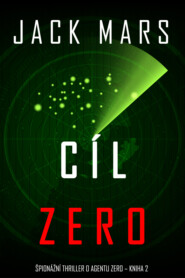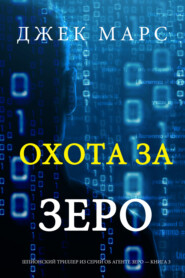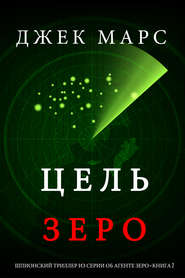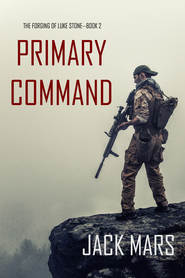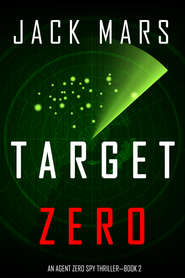По всем вопросам обращайтесь на: info@litportal.ru
(©) 2003-2025.
✖
Oppose Any Foe
Настройки чтения
Размер шрифта
Высота строк
Поля
Kurt looked around the room. “In short, if there are terror attacks being planned in Europe, and we can safely assume there are, there’s a pretty good chance that the planning is taking place in Molenbeek. Are we clear on this?”
A ripple of agreement went through the room.
“Okay, let’s see Kleine Brogel.”
On the screen, the map zoomed out, scrolled to the right a short distance, then zoomed in again. Luke could make out runways and buildings at a rural airfield not far from a small town.
“Kleine Brogel Air Base,” Kurt said. “It’s a Belgian military airfield located about sixty miles east of Brussels. The village you see there is the municipality of Kleine Brogel, hence the name of the base. The base is home to the Belgian Tenth Tactical Wing. They fly F-16 Falcons, supersonic jet fighters, which among other capabilities, can deliver B61 nuclear bombs.”
On the screen, the map disappeared and an image materialized. It was of a missile-shaped bomb, mounted on a wheeled trundle and parked beneath the fuselage of a fighter jet. The bomb was long and sleek, gray with a black tip.
“Here you see the B61,” Kurt said. “Not quite twelve feet long, about thirty inches in diameter, and weighing in at about seven hundred pounds. It’s a variable yield weapon that can put as many as three hundred forty kilotons on a target – roughly twenty times the magnitude of the Hiroshima explosion. Compare that yield to the megatons of the large ballistic missiles, and you can see that the B61 is a small tactical nuke. It’s designed to be carried by fast airplanes, like the F-16. You’ll note its streamlined shape – that’s so it can withstand the speeds its delivery craft are likely to reach. These are American-made bombs, and we share them with Belgium as part of our NATO agreements.”
“So the bombs are onsite there?” Susan said.
Kurt nodded. “Yes. I’d say about thirty of them. I can get you the exact figure, if we need it.”
Another ripple went through the gathered crowd.
Kurt raised his hand. “It gets better. Kleine Brogel is a political football in Belgium. Many Belgians hate the fact that the bombs are there, and want them out of the country. In 2009, a group of Belgian peace activists decided to show everyone how unsafe the bombs were. They breached the security of the base.”
The map reappeared on the screen. Kurt indicated an area along the bottom edge of the base. “To the south of the airfield there are some dairy farms. The activists walked across the farmland, then climbed the fence. They wandered around the base for at least forty-five minutes before anyone noticed they were there. When they were finally intercepted – by a Belgian airman with an unloaded rifle, by the way – they were standing right outside a bunker where some of the bombs were stored. They had already spray-painted slogans on the bunker and put up some of their stickers.”
Chatter erupted in the room again, louder and more pronounced this time.
“Okay, okay. It was a serious lapse in security. But before we get carried away, let’s recognize a few things. For one, the bunkers were locked – there was no danger the activists were going to get inside. Also, the bombs are stacked in chambers underground – even if the activists did somehow make it inside, they wouldn’t have been able to operate the hydraulic lifts to bring the bombs to the surface. The activists were on foot, so even if they managed to operate the lifts, they wouldn’t have gotten very far carrying a weapon that weighs seven hundred pounds.”
“So, with all that in mind, what is your assessment of the risk level?” Haley Lawrence said.
Kurt took a long pause. He seemed to stare at something very far away for a moment. To Luke, it was if Kurt’s mind was a calculator, currently attaching numbers to the various elements he had just described, then adding, subtracting, multiplying, and dividing them.
“High,” he said.
“High?”
Kurt nodded. “Yes, of course. It’s a high-level threat. Could a group be planning to steal a bomb from Kleine Brogel? Sure. This isn’t the first time we’ve heard this idea – it arises from time to time in terrorist network chatter that NSA and the Pentagon pick up. A terror cell in Brussels might have a contact or contacts at the airbase who can help them – in fact, this is a very likely scenario. Yes, the bombs aren’t operational without the nuclear codes, and yes, they’re meant to be delivered by supersonic aircraft. But what if the Iranians want the bombs simply to reverse engineer them, or even just to mine them for the nuclear material? The militants in Molenbeek tend to be Sunnis, and they hate Iran. Our militants could be mercenaries, willing to hire themselves out to the highest bidder.
“Or consider this,” Kurt continued. “The Somali air force has a handful of obsolete supersonic jets. Most are in disrepair, but I bet one or two could still get airborne. The Somali government is weak, under constant attack from radical Islam, and teetering on the verge of collapse. What if militant Islamists commandeer one of these aircraft, mount a bomb on it, and crash the entire plane in a nuclear suicide attack?”
“Didn’t you just say the bombs won’t work without the codes?” Susan said.
Kurt shrugged. “Nuclear codes are among the most advanced encryption on the planet. To our knowledge, they’ve never been broken, leaked, or stolen. But that doesn’t mean they won’t be. In worst-case-scenario planning, I’d say the safest assumption is that one day the codes will be broken, if they aren’t already.”
“So what do you suggest we do?”
Kurt didn’t hesitate. “Beef up security at Kleine Brogel Airbase. Do it immediately. We have troops there, but they’re in a constant state of tension with the Belgians. To get any meaningful increase in security, we’re going to have to step on some toes. I’d also reexamine security measures at the other NATO bases where American nuclear weapons are stored. I think we’ll find that these are in pretty good shape. For lax security, the Belgians really take the cake.
“Finally, I’d do something that I’ve wanted to do for a while – put a few special operatives on the ground in Brussels, specifically Molenbeek. Have them poke around and ask some questions. This is the kind of thing the Belgians should be doing on a regular basis, but don’t. It wouldn’t necessarily have to be a secret operation – it might even be better if it isn’t. Just have the right agents go in there, ones who don’t normally take no for an answer, and lean hard on a few people.”
Nearly exhausted, Luke was only half-listening. He was mostly trying to hang on until the meeting ended. Slowly, he became aware that many of the people in the room were staring at him.
He raised his palms and leaned back.
“Thanks,” he said, “but no.”
* * *
“So who’s trying to kill you?” Susan said.
Luke sat in a high-backed leather chair in the sitting area of the Oval Office. Beneath his feet was the Seal of the President of the United States. The last time he was here, the Secret Service had him face-down against that seal. But of course, that was a different carpet – although it looked identical, this was an entirely new room. The other one had been destroyed. For a moment, he had forgotten that.
Man, he was tired.
An aide had brought Luke a cup of coffee in a Styrofoam cup. Maybe that would help him wake up. He sipped it – the President’s coffee was always good.
“I don’t know,” he said. “Last I heard, they were running some DNA and fingerprint tests on the dead guy.”
Luke studied Susan’s face. She had aged. The lines in her skin had deepened and become creases. The skin itself was not as firm and buoyant. Somehow, she had kept her adolescent beauty well into middle age, but in six months as President, time had caught up with her.
Luke thought of the youthful, middle-aged Abraham Lincoln becoming President, a man so energetic and physically powerful he was renowned for his parlor trick feats of strength. Four years later, just before he was assassinated, the stress of the Civil War had turned him into a frail and wizened old man.
Susan was still beautiful, but it was different now. She looked almost weathered. He wondered what she thought about it, or if she had even noticed it yet. Then he answered his own question – of course she had noticed it. She was a former supermodel. She probably noticed the smallest changes to her appearance. For the first time, he noticed the dress she was wearing. It was deep blue, very fancy, and clung perfectly to her shape. The neckline was ruffles – there, but understated.
“Hey, nice dress,” he said.
She gestured at it with mock disdain. “This old thing? It’s just something I threw on. You did know we were having a ceremony today, didn’t you?”
Luke nodded. He knew. “It’s amazing,” he said. “The way they put this place back together exactly the way it was before.”
“It’s a little creepy if you ask me,” Susan said. She glanced around at the high-ceilinged room. “I lived at the Naval Observatory for five years. I love that house. I wouldn’t mind living there the rest of my life. This place is going to take some getting used to.”
They lapsed into silence. Luke was here simply to pay his respects. In another minute, he was going to ask her for a car, or preferably a helicopter, to take him out to the Eastern Shore.
“So what do you think?” she said.
“What do I think? About what?”
“About the meeting we just had.”
Luke yawned. He was tired. “I don’t know what to think. Do we have nuclear weapons in Europe? Yes. Are they vulnerable? It sounds like they could be more secure than they are. Beyond that…”
He trailed off.
“Will you go?” she said.
Luke almost laughed. “You don’t need me in Belgium, Susan. Just put an extra security detail at the base there, preferably Americans, and preferably carrying loaded weapons. That should do the trick.”
Susan shook her head. “If it’s a credible threat, we should get to the source of it. Listen, we’ve been playing footsie with the Belgians far too long. There have been too many attacks coming out of Brussels, and I’d like to break those networks. It’s beyond the pale that after the Paris attacks they didn’t put all of Molenbeek on lockdown. Sometimes I wonder whose side they’re on.”
A ripple of agreement went through the room.
“Okay, let’s see Kleine Brogel.”
On the screen, the map zoomed out, scrolled to the right a short distance, then zoomed in again. Luke could make out runways and buildings at a rural airfield not far from a small town.
“Kleine Brogel Air Base,” Kurt said. “It’s a Belgian military airfield located about sixty miles east of Brussels. The village you see there is the municipality of Kleine Brogel, hence the name of the base. The base is home to the Belgian Tenth Tactical Wing. They fly F-16 Falcons, supersonic jet fighters, which among other capabilities, can deliver B61 nuclear bombs.”
On the screen, the map disappeared and an image materialized. It was of a missile-shaped bomb, mounted on a wheeled trundle and parked beneath the fuselage of a fighter jet. The bomb was long and sleek, gray with a black tip.
“Here you see the B61,” Kurt said. “Not quite twelve feet long, about thirty inches in diameter, and weighing in at about seven hundred pounds. It’s a variable yield weapon that can put as many as three hundred forty kilotons on a target – roughly twenty times the magnitude of the Hiroshima explosion. Compare that yield to the megatons of the large ballistic missiles, and you can see that the B61 is a small tactical nuke. It’s designed to be carried by fast airplanes, like the F-16. You’ll note its streamlined shape – that’s so it can withstand the speeds its delivery craft are likely to reach. These are American-made bombs, and we share them with Belgium as part of our NATO agreements.”
“So the bombs are onsite there?” Susan said.
Kurt nodded. “Yes. I’d say about thirty of them. I can get you the exact figure, if we need it.”
Another ripple went through the gathered crowd.
Kurt raised his hand. “It gets better. Kleine Brogel is a political football in Belgium. Many Belgians hate the fact that the bombs are there, and want them out of the country. In 2009, a group of Belgian peace activists decided to show everyone how unsafe the bombs were. They breached the security of the base.”
The map reappeared on the screen. Kurt indicated an area along the bottom edge of the base. “To the south of the airfield there are some dairy farms. The activists walked across the farmland, then climbed the fence. They wandered around the base for at least forty-five minutes before anyone noticed they were there. When they were finally intercepted – by a Belgian airman with an unloaded rifle, by the way – they were standing right outside a bunker where some of the bombs were stored. They had already spray-painted slogans on the bunker and put up some of their stickers.”
Chatter erupted in the room again, louder and more pronounced this time.
“Okay, okay. It was a serious lapse in security. But before we get carried away, let’s recognize a few things. For one, the bunkers were locked – there was no danger the activists were going to get inside. Also, the bombs are stacked in chambers underground – even if the activists did somehow make it inside, they wouldn’t have been able to operate the hydraulic lifts to bring the bombs to the surface. The activists were on foot, so even if they managed to operate the lifts, they wouldn’t have gotten very far carrying a weapon that weighs seven hundred pounds.”
“So, with all that in mind, what is your assessment of the risk level?” Haley Lawrence said.
Kurt took a long pause. He seemed to stare at something very far away for a moment. To Luke, it was if Kurt’s mind was a calculator, currently attaching numbers to the various elements he had just described, then adding, subtracting, multiplying, and dividing them.
“High,” he said.
“High?”
Kurt nodded. “Yes, of course. It’s a high-level threat. Could a group be planning to steal a bomb from Kleine Brogel? Sure. This isn’t the first time we’ve heard this idea – it arises from time to time in terrorist network chatter that NSA and the Pentagon pick up. A terror cell in Brussels might have a contact or contacts at the airbase who can help them – in fact, this is a very likely scenario. Yes, the bombs aren’t operational without the nuclear codes, and yes, they’re meant to be delivered by supersonic aircraft. But what if the Iranians want the bombs simply to reverse engineer them, or even just to mine them for the nuclear material? The militants in Molenbeek tend to be Sunnis, and they hate Iran. Our militants could be mercenaries, willing to hire themselves out to the highest bidder.
“Or consider this,” Kurt continued. “The Somali air force has a handful of obsolete supersonic jets. Most are in disrepair, but I bet one or two could still get airborne. The Somali government is weak, under constant attack from radical Islam, and teetering on the verge of collapse. What if militant Islamists commandeer one of these aircraft, mount a bomb on it, and crash the entire plane in a nuclear suicide attack?”
“Didn’t you just say the bombs won’t work without the codes?” Susan said.
Kurt shrugged. “Nuclear codes are among the most advanced encryption on the planet. To our knowledge, they’ve never been broken, leaked, or stolen. But that doesn’t mean they won’t be. In worst-case-scenario planning, I’d say the safest assumption is that one day the codes will be broken, if they aren’t already.”
“So what do you suggest we do?”
Kurt didn’t hesitate. “Beef up security at Kleine Brogel Airbase. Do it immediately. We have troops there, but they’re in a constant state of tension with the Belgians. To get any meaningful increase in security, we’re going to have to step on some toes. I’d also reexamine security measures at the other NATO bases where American nuclear weapons are stored. I think we’ll find that these are in pretty good shape. For lax security, the Belgians really take the cake.
“Finally, I’d do something that I’ve wanted to do for a while – put a few special operatives on the ground in Brussels, specifically Molenbeek. Have them poke around and ask some questions. This is the kind of thing the Belgians should be doing on a regular basis, but don’t. It wouldn’t necessarily have to be a secret operation – it might even be better if it isn’t. Just have the right agents go in there, ones who don’t normally take no for an answer, and lean hard on a few people.”
Nearly exhausted, Luke was only half-listening. He was mostly trying to hang on until the meeting ended. Slowly, he became aware that many of the people in the room were staring at him.
He raised his palms and leaned back.
“Thanks,” he said, “but no.”
* * *
“So who’s trying to kill you?” Susan said.
Luke sat in a high-backed leather chair in the sitting area of the Oval Office. Beneath his feet was the Seal of the President of the United States. The last time he was here, the Secret Service had him face-down against that seal. But of course, that was a different carpet – although it looked identical, this was an entirely new room. The other one had been destroyed. For a moment, he had forgotten that.
Man, he was tired.
An aide had brought Luke a cup of coffee in a Styrofoam cup. Maybe that would help him wake up. He sipped it – the President’s coffee was always good.
“I don’t know,” he said. “Last I heard, they were running some DNA and fingerprint tests on the dead guy.”
Luke studied Susan’s face. She had aged. The lines in her skin had deepened and become creases. The skin itself was not as firm and buoyant. Somehow, she had kept her adolescent beauty well into middle age, but in six months as President, time had caught up with her.
Luke thought of the youthful, middle-aged Abraham Lincoln becoming President, a man so energetic and physically powerful he was renowned for his parlor trick feats of strength. Four years later, just before he was assassinated, the stress of the Civil War had turned him into a frail and wizened old man.
Susan was still beautiful, but it was different now. She looked almost weathered. He wondered what she thought about it, or if she had even noticed it yet. Then he answered his own question – of course she had noticed it. She was a former supermodel. She probably noticed the smallest changes to her appearance. For the first time, he noticed the dress she was wearing. It was deep blue, very fancy, and clung perfectly to her shape. The neckline was ruffles – there, but understated.
“Hey, nice dress,” he said.
She gestured at it with mock disdain. “This old thing? It’s just something I threw on. You did know we were having a ceremony today, didn’t you?”
Luke nodded. He knew. “It’s amazing,” he said. “The way they put this place back together exactly the way it was before.”
“It’s a little creepy if you ask me,” Susan said. She glanced around at the high-ceilinged room. “I lived at the Naval Observatory for five years. I love that house. I wouldn’t mind living there the rest of my life. This place is going to take some getting used to.”
They lapsed into silence. Luke was here simply to pay his respects. In another minute, he was going to ask her for a car, or preferably a helicopter, to take him out to the Eastern Shore.
“So what do you think?” she said.
“What do I think? About what?”
“About the meeting we just had.”
Luke yawned. He was tired. “I don’t know what to think. Do we have nuclear weapons in Europe? Yes. Are they vulnerable? It sounds like they could be more secure than they are. Beyond that…”
He trailed off.
“Will you go?” she said.
Luke almost laughed. “You don’t need me in Belgium, Susan. Just put an extra security detail at the base there, preferably Americans, and preferably carrying loaded weapons. That should do the trick.”
Susan shook her head. “If it’s a credible threat, we should get to the source of it. Listen, we’ve been playing footsie with the Belgians far too long. There have been too many attacks coming out of Brussels, and I’d like to break those networks. It’s beyond the pale that after the Paris attacks they didn’t put all of Molenbeek on lockdown. Sometimes I wonder whose side they’re on.”






